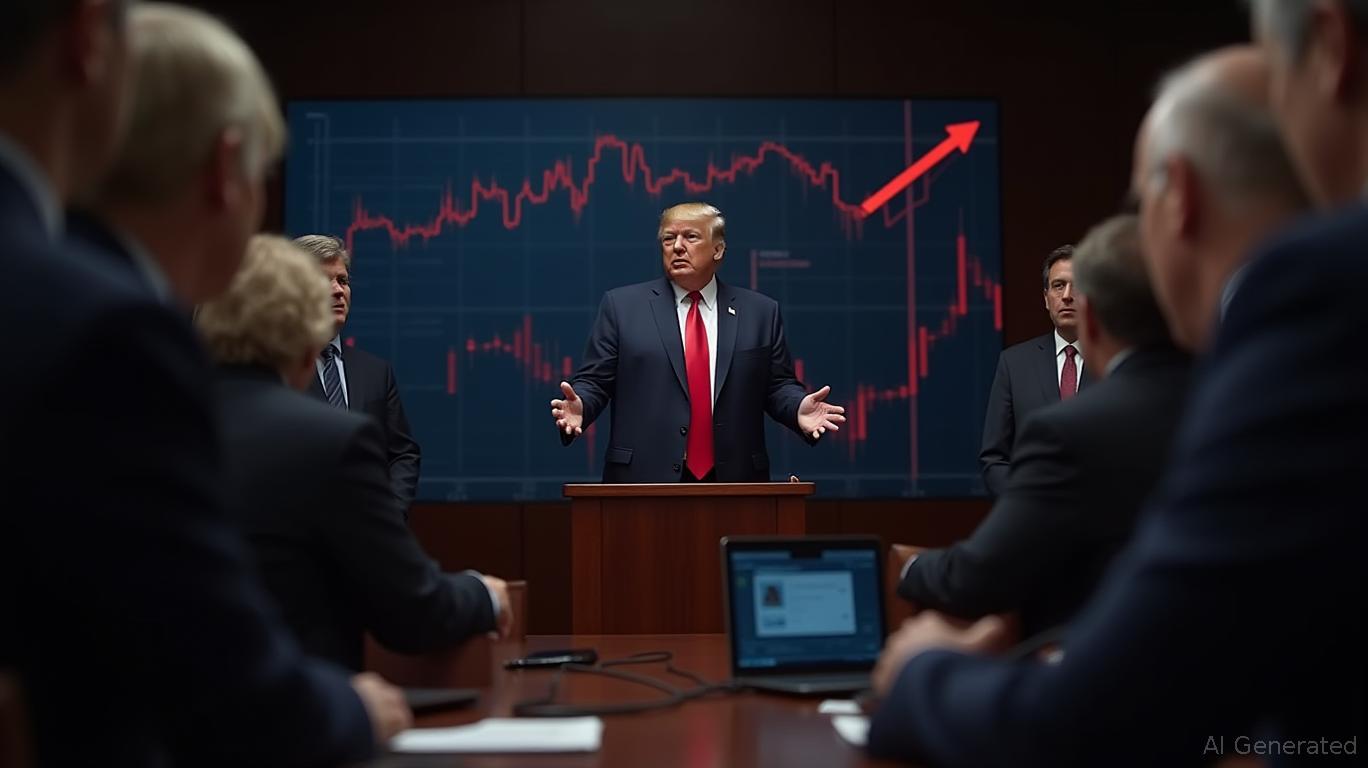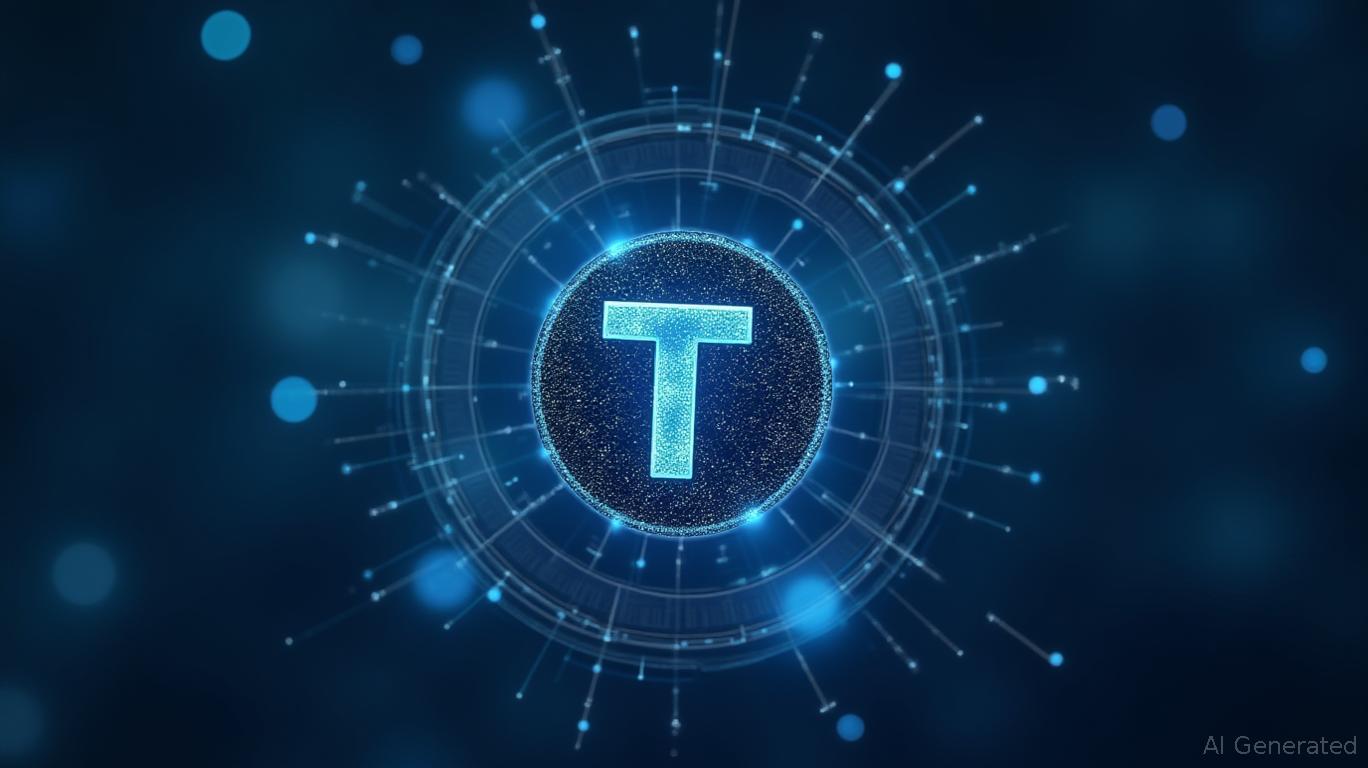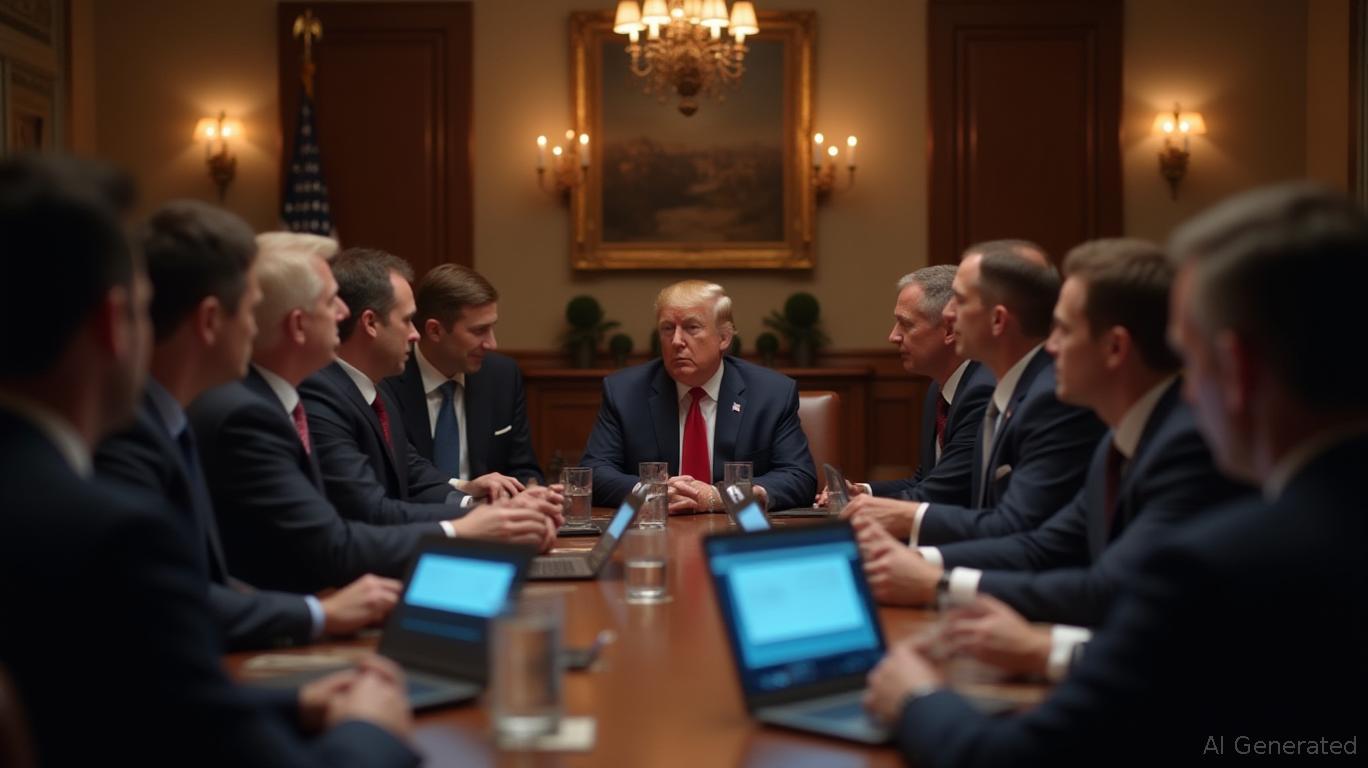Pardon or Pay-to-Participate? Trump’s Cryptocurrency Decision Ignites Regulatory Divide
- Trump's pardon of Binance founder Zhao sparks global debate on crypto regulation and political influence. - Zhao, who paid $50M fine for AML failures, faces criticism for alleged ties to Trump's crypto ventures. - White House defends decision as overprosecution, while critics accuse administration of "pay-to-play" corruption. - Binance's BNB surged 15% post-pardon, with analysts calling it a potential "game-changer" for U.S. crypto. - Zhao pledged support for Trump's "crypto capital" vision, fueling spec
President Donald Trump’s decision to grant clemency to Changpeng "CZ" Zhao, the founder of Binance, has sparked a worldwide discussion about the regulation of cryptocurrencies, the influence of politics, and the direction of the U.S. digital asset sector. Announced on October 23, 2025, this action represents a significant change in the federal government’s stance on digital currencies. Both detractors and advocates are describing it as a symbolic conclusion to what the
In 2023, Zhao admitted guilt to failing to implement a robust anti-money laundering (AML) system at Binance, resulting in a four-month prison sentence and a $50 million penalty. The platform itself reached a $4.3 billion settlement with U.S. authorities—the largest fine in crypto history—for breaches such as sanctions violations and operating without proper licensing, as detailed in

The White House has stood by the pardon, with Press Secretary Karoline Leavitt arguing that Zhao was "overly prosecuted" by the previous administration and that the pardon demonstrates Trump’s dedication to reducing regulation, as previously reported by Coinpaprika. Trump stated that the decision was supported by "many very good people" who believed Zhao’s conduct was not criminal, according to
The pardon has already triggered immediate reactions in the market. Binance’s own token,
Zhao, who still holds a majority stake in Binance, has voiced his appreciation for the pardon and promised to help Trump realize his vision of making the U.S. the "crypto capital," as reported by
As the controversy continues, the pardon highlights the deepening ties between digital assets and politics, with Trump’s administration presenting itself as a proponent of decentralized finance, while critics warn of weakened oversight and ethical concerns.
Disclaimer: The content of this article solely reflects the author's opinion and does not represent the platform in any capacity. This article is not intended to serve as a reference for making investment decisions.
You may also like
Crypto Partnership Instability Exposed in $120M AI Collaboration Agreement
- Ocean Protocol and Fetch.ai settled a $120M dispute by returning 286M FET tokens, avoiding prolonged litigation and refocusing on decentralized AI/Web3 projects. - The 2024 ASI Alliance merger triggered accusations over token liquidity, with Ocean converting OCEAN to FET and transferring 286M tokens to exchanges. - FET's 93% price drop since the merger highlighted governance flaws, prompting Ocean to exit the alliance and Fetch.ai to prioritize community protection. - The settlement includes legal cost c

Ozekibart's 52% Reduction in Risk Sparks 70% Jump Amid Concerns Over Liver Safety
- Inhibrx Biosciences’ ozekibart showed 52% reduced disease progression risk in chondrosarcoma, driving a 70% post-market stock surge. - Combination trials in colorectal and Ewing sarcoma showed 23%–64% response rates, suggesting broader oncology potential. - Hepatotoxicity concerns led to monitoring strategies, reducing adverse events to 11.8% in ozekibart group. - Company plans 2026 BLA submission; stock surged 63% pre-market after prior 10% decline.

Tether Seeks to Democratize AI, Returning Power to the People
- Tether launches QVAC Genesis I (41B-token synthetic dataset) and QVAC Workbench, aiming to decentralize STEM-focused AI development by enabling on-device training and reducing cloud dependency. - The tools prioritize data privacy through local processing, supporting open-source models like Llama and Medgemma while targeting improved AI precision in math, physics, and medicine. - CEO Paolo Ardoino emphasizes "returning intelligence to the people," aligning with Tether's blockchain expertise to shift AI in

XRP News Update: Silicon Valley and Crypto Investors Back Trump’s Ballroom in Support of Pro-Digital Policies
- Trump's $300M White House ballroom, funded by crypto firms and Big Tech, sparks debates over corporate influence and transparency in political donations. - Ripple, Tether, Coinbase, and YouTube (via $22M) join Amazon/Google/Meta in backing the project, signaling crypto/tech sector's strategic alignment with Trump's pro-digital policies. - Critics argue donor recognition (plaques) blurs ethical lines, while preservationists warn the 90,000-sq-ft addition risks damaging the White House's historic design. -
